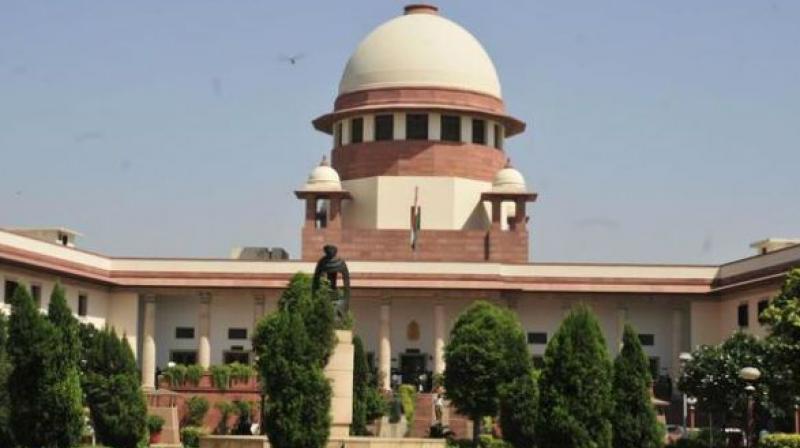Supreme Court hears triple talaq issue, not polygamy appeal
Crucial hearing on triple talaq's validity begins.

New Delhi: The Supreme Court made it clear on Thursday it will decide only the legality of the “triple talaq” form of divorce and whether it violates the fundamental rights of Muslim women, but will not go into the issue of polygamy.
A five-member bench comprising Chief Justice J.S. Khehar and Justices Kurian Joseph, Rohinton Nariman, Uday Lalit and Abdul Nazeer at the outset told the counsel, “If we come to the conclusion that triple talaq is part of the fundamental right to religion, we would not interfere. We will also determine whe-ther triple talaq is sacramental and whe-ther it can be enforced as a fundamental right. We will not go into the issue of polygamy.”
Senior counsel Kapil Sibal, appearing for the All India Muslim Personal Law Board, in his preliminary remarks said triple talaq falls under the AIMPLB and therefore the court should not intervene.
He said, “The Central government makes rules but, in my opinion, the apex court should not interfere with it.” The day-long hearing saw additional solicitors-general Tushar Mehta and Pinky Anand telling the bench that the Centre was not taking sides and only assisting the court on the issues of gender justice, equality for women and dignity of women.
Triple talaq is non-issue: Khurshid
“The Union of India is not on any side. We are on (the side of) gender justice, equality for women and dignity of women. triple talaq is against the dignity of women. Issue of gender justice is there,” Mr Mehta said.
He added that attorney-general Mukul Rohatgi would put forward his arguments on May 15.
He added that the arguments by Mr Rohatgi would not only include triple talaq in all forms, but also the issue of polygamy.
To this, the bench said, “We have not asked (you) to consider this (polygamy). Do what you want. All we are saying is you are answering a case which is not before us.”
Former Union law minister Salman Khurshid, who has intervened in this case briefly, submitted that triple talaq is a non-issue as it is not considered complete without conciliation efforts between husband and wife.
He noted that there is no adjudication to determine the validity of the grounds of talaq, but talaq cannot take effect without prior reconciliation. Talaq should be spread over three months and will be effective only after compensation is paid to the wife and children. When the CJI asked Mr Khurshid if reconciliation after the pronouncement of talaq three times is codified, he said “no”.
When Justice Nariman wanted to know if what is being attacked is triple talaq at one stroke which is irrevocable, the counsel said “yes”.
Appearing for the main petitioner, Shayara Banu, senior counsel A.S. Chadda submitted that instantaneous talaq said three times was not part of the Holy Quran and was against God and not part of Muslim law. He said even if it is assumed triple talaq is a part of religion, it must go as it violated Article 14 of the Constitution (right to equality). He said the law had to change with the times, and international covenants and treaties could be referred to in order to examine the validity and reasonableness of a provision.
CJI asked the counsel what had prevented Parliament from enacting a law to ban “triple talaq”. Justice Joseph wondered if the courts can interfere in such matters when the legislature had chosen to keep its hands off.
Justice Lalit asked the counsel what remedy Muslim men could have for divorce if triple talaq was struck down as unconstitutional.

